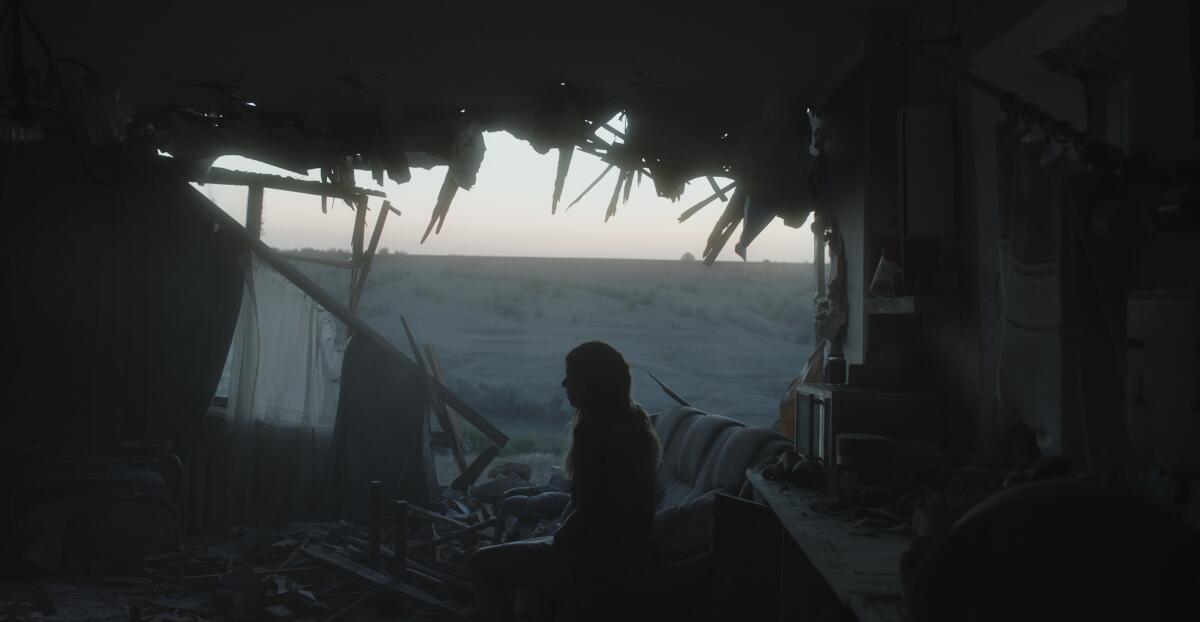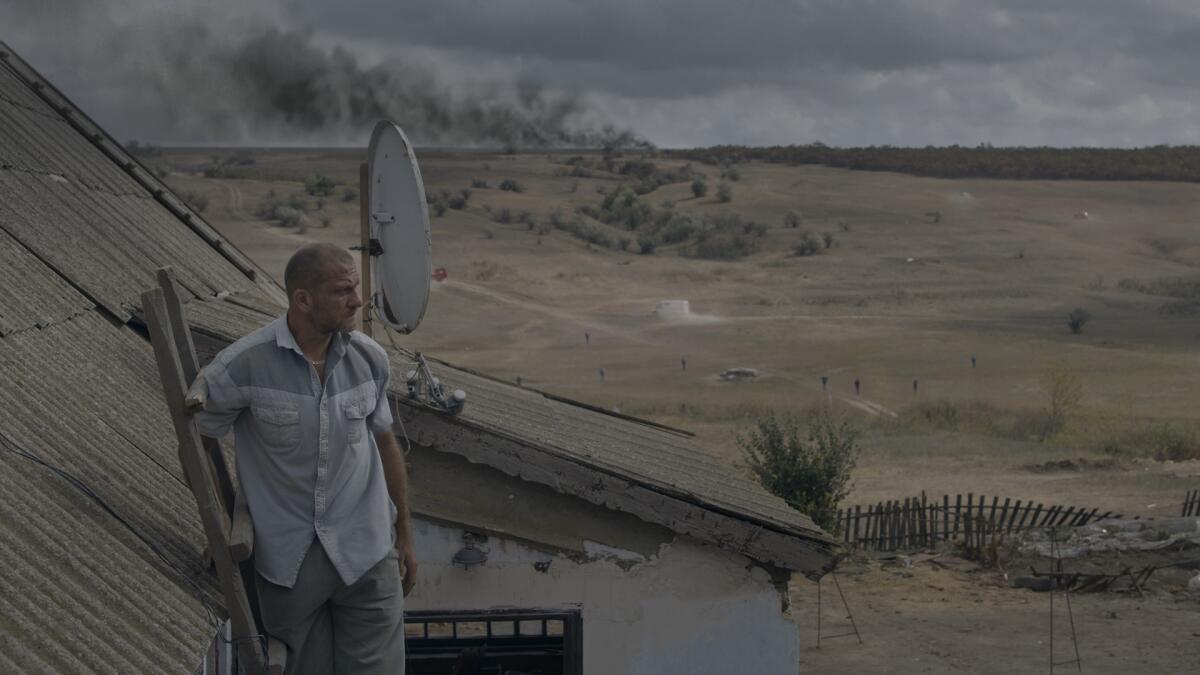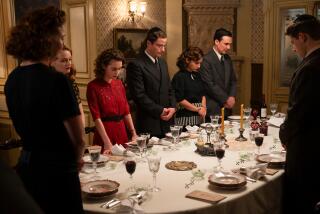Review: Horror of a passenger jet’s downing is revisited, obliquely, in the arresting ‘Klondike’

The last 15 minutes of Maryna Er Gorbach’s “Klondike” are some of the most harrowing — and intimate — I have ever seen on film. The final scene, a three-and-a-half-minute unbroken static shot of a woman on a couch in a living room with a bombed-out wall exposing the landscape behind her, has haunted me since I first watched this Ukrainian–Turkish film in January 2022, when it premiered at the Sundance Film Festival.
At the end of that week, Ukrainian filmmaker Er Gorbach was awarded Sundance’s World Cinema Dramatic jury prize for directing, 28 days before Russia invaded Ukraine on February 24. But violent tensions had been flaring for almost a decade before that, in eastern Ukraine, the setting of “Klondike.” This domestic drama plays out in the village of Hrabove, Donetsk, on and around July 17, 2014, when Russian-controlled separatists shot down Malaysia Airlines Flight 17, traveling from Amsterdam to Kuala Lumpur.
In “Klondike,” the missile attack and subsequent crash is integral to what we see in one family’s home, but it is not the focus of the story. Instead, we follow the heavily pregnant Irka (Oksana Cherkashyna) and her husband Tolik (Sergey Shadrin) as they attempt to prepare for their new baby. The plane catastrophe is experienced only through their reactions: Tolik’s eyes widening right before he takes off running through a field; or Irka, sheltered by her brother Yaryk (Oleg Shcherbina) in an outdoor cellar, listening to the sounds of debris falling around her.
With its limited setting and cast of characters, “Klondike” sometimes feels like a play, and one can imagine what it might have been like as a staged production. But Er Gorbach’s project is also distinctly cinematic. Working with cinematographer Svyatoslav Bulakovskiy, she juxtaposes the epic and the personal, the political and the familial.

“Klondike” presents a stark contrast between the quotidian rhythms of everyday life — Irka’s swollen belly provides the urgency of a ticking countdown clock — and the absurdism of the fumbling beginnings of war. In one shot, Tolik attempts to fix the satellite dish on their roof, knocked loose by the plane crash, as black smoke billows in the far distance and emergency vehicles gather on the road behind him. The director frequently stages action in the background, headlights and cars a constant reminder of what’s coming, but she also frames Cherkashyna and Shadrin’s faces in the foreground as an inextricable part of the landscape.
Er Gorbach also employs a repeated motif of slow lateral pans that follow a character’s action and reveal new information. The pans are often preceded by an explosion or attack, the measured movement drawing out the aching contradiction between senseless destruction and the gentleness of life. A doleful, almost ambient score by Zviad Mgebry lends to the poignant tone and patient pace.
The uncanny nature of a plane crash, the sheer strangeness of it, underscores the contrast that Er Gorbach wants to explore in “Klondike.” What was once in the sky is now on the ground. When Irka and Tolik take a Dutch couple to the crash site to look for their daughter, the parents silently perch on a piece of the wing, the image entirely surreal. A body, still belted to an airplane seat, lands in their yard, illustrating the absurd futility of surviving an anti-aircraft missile.
We’ve already seen the weapon. It rumbled in the far background as Tolik complained to his separatist friend, Sanya (Oleg Shevchuk), about stealing his car. Tolik is an unwilling collaborator, but a collaborator nonetheless. His brother-in-law sadly observes, “You are not a separatist, Tolik, you are a slave.”
Ultimately, “Klondike” feels like a cautionary tale against apathy and inaction. But the remote, observational nature of the camera doesn’t force a moral message. It simply shows us that life, an unstoppable force, continues, even in the unimaginable face of death and brutality, whether we want it to or not. “Klondike” is certainly not an easy watch, but it is a profound one — a film that feels both prescient and retrospective about Ukraine, locked in what seems a never-ending existential conflict with its neighbor.
'Klondike'
Not rated
In Ukrainian, Russian, Dutch and Chechen, with English subtitles
Running time: 1 hour, 40 minutes
Playing: Laemmle Royal, West Los Angeles
More to Read
Only good movies
Get the Indie Focus newsletter, Mark Olsen's weekly guide to the world of cinema.
You may occasionally receive promotional content from the Los Angeles Times.










